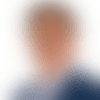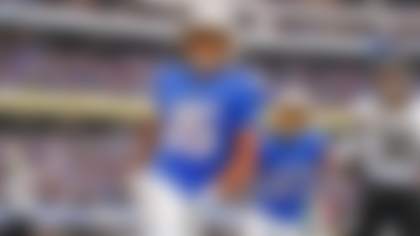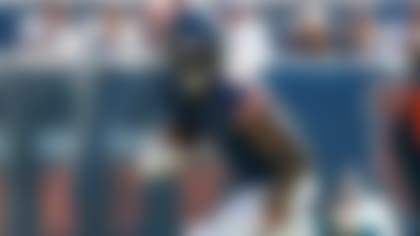Every NFL franchise strives for perfection. Front offices and coaching staffs attempt to build well-oiled machines, with all 53 players on the roster firing on all cylinders. But in the ultimate team sport, with moving parts across three different game phases (offense, defense and special teams), there are inevitably imperfections. And if these defects aren't properly tended to, they can snowball and bring down the entire operation.
Not to fret, though: Mr. Fix-It is here!
Each week, 12-year NFL veteran and noted tape junkie Brian Baldinger will spotlight specific shortcomings and offer solutions for the affected teams. All free of charge! Here is his advice for three teams heading into Week 3:
1) PITTSBURGH STEELERS: Put receivers in better positions.
The sky has fallen over the three rivers that comprise the Steel City. That's what it feels like with the marvelous 16-year career of Ben Roethlisberger hanging in the balance as a bad elbow and imminent surgery landed him on IR for the first time. Yet, if you look at the six quarters of Big Ben's season, the offense was not productive. The only touchdown scored was a 1-yard plunge by James Conner, which was set up by T.J. Watt's strip of Chris Carson that gave the offense a short field.
Mason Rudolph takes over under center for a team that has issues that go far beyond the loss of its veteran quarterback. Let's start with the receiver play. The six wideouts who have been targeted so far this season -- JuJu Smith-Schuster, Donte Moncrief, Ryan Switzer, Diontae Johnson, James Washington and Johnny Holton -- have yet to get in the end zone. The saying "You never know how much someone is missed until they are gone" appears to be the case with the loss of Antonio Brown. The group's biggest issue: These receivers don't seem to be able to beat man-to-man coverage. Pittsburgh pass catchers rank 29th in the league when it comes to separation, per Next Gen Stats. Johnson, a third-rounder out of Toledo, has the highest separation (3.1 yards) among Pittsburgh's receivers with at least five targets this season -- and he was, without a doubt, the most impressive receiver in the team's two-point loss to Seattle, making a terrific one-handed catch on third down to keep a drive alive.
With Brown routinely drawing double-teams and catching touchdowns in Pittsburgh for the bulk of this decade, he opened up windows and opportunities for a bundle of receivers. Without Brown, this issue falls on offensive coordinator Randy Fichtner, who now must decide how to help scheme his receivers free. It starts with his anticipation of what the defense is playing. If the defense is running man, Fichtner better dial up some formations that include bunches and clusters where natural screens can be created to get players open. Sunday against the 49ers, who are primarily a zone-drop team, running play-action off exotic formations might be necessary to allow time for Steelers receivers to get further down field for chunk plays (20-plus yards). Rudolph found success with this against the Seahawks, completing 71.4 percent of his play-action passes.
Lastly, this group needs to spend a lot of time on the JUGS machine catching footballs because there have been far too many drops in two games. On 89 targets (third-most in the NFL), Steelers receivers lead the league with seven drops.
2) ARIZONA CARDINALS: Get David Johnson and Charles Clay going.
There were tons of whispers and displays of doubt about Kliff Kingsbury's Air Raid offense coming into the season. With the coach's losing record at Texas Tech and a rookie quarterback spearheading the Cardinals' offense, such skepticism was understandable. Until the fourth-quarter comeback in Week 1, when Kyler Murray put on a valiant display of competitive fire and moxie to give his team a chance. Though that game ended in a tie, the Cardinals rode the momentum and took their aerial circus to Baltimore in Week 2. Murray threw for 350 yards against one of the league's best defenses (and most talented secondaries). Ravens DC Don "Wink" Martindale threw the kitchen sink at Murray for most of his 40 attempts. The Heisman Trophy winner was spectacular in the Cardinals' late comeback effort, throwing through trees and outrunning every defender -- at times, he even had the great Earl Thomas going the wrong way.
Last week, despite the six-point loss, we really saw what this Air Raid offense could be, with Christian Kirk, Larry Fitzgerald, KeeSean Johnson and Damiere Byrd causing problems in an attack full of motions, shifts and a zillion formations. What's missing, though? A better offensive line and a superior red-zone threat -- the type of player who can routinely win contested catches at the rim. Tight end Charles Clay has the skills to be this guy for Murray; he just needs to channel the player he was in Miami.
Another missing piece is the threat of a powerful rushing attack that can convert third-and-1 and goal-line situations. David Johnson had a 1-yard TD run last week and fortunately avoided another serious wrist injury, but the Cardinals need to be able to routinely rely on him -- like they could in 2016. If Johnson can bring back the spark to Arizona's 27th-ranked ground game, this regime will be here to stay for a long time.
3) DALLAS COWBOYS: Help LG Connor Williams early and often.
Kellen Moore and Dak Prescott are the toast of the newly minted NFL season, and rightfully so. But if Moore and Prescott are looking at their dynamic offense truthfully right now, the pair realizes there is an area that needs addressing, because everyone knows a team is only as strong as its weakest link. Second-year left guard Connor Williams does a lot of really good things and has steadily improved over two seasons, but in the NFC, he could face the likes of Aaron Donald, DeForest Buckner, Fletcher Cox and Akiem Hicks in playoff matchups. And let's face it: The Cowboys' goal is the Super Bowl, and the better the competition gets, the more mistakes get magnified.
Last week, Williams was flagged for a hold and a false start. I saw poor pass sets lead to a sack by Daron Payne, and Williams was beaten on the play where Prescott threw his only INT of the season. Williams is young and talented, so I don't think a position change is imminent. But he must improve -- and Moore must keep the left guard in mind when it comes to his formations and play calls. I saw Moore give Williams some help vs. the Redskins in Week 2, when Jason Witten hovered around the guard before running his pass route, and when the Cowboys used play-action to slow down the pass rush, and when Ezekiel Elliott hesitated at the line before he checked out into his pattern.
These were all positive signs, but getting Williams help earlier is the key. Moore can't wait until the Cowboys give up the lead or commit a turnover.
4) SEATTLE SEAHAWKS: Field a healthy pass rush.
How does Seattle's 26th-ranked pass defense improve? Get Jadeveon Clowney, L.J. Collier and Ziggy Ansah on the field at the same time. The first-round defensive tackle and Ansah warmed up against the Steelers last week, and Collier appeared in 16 snaps in his NFL debut. Pete Carroll said Ansah, who has been working his way back from last year's shoulder surgery, could play "a considerable amount" against the Saints on Sunday. Ansah has had two double-digit sack seasons in the past four years, while Collier is a physical player who is best when he can convert speed to power -- which will come with more reps.
Getting this trio healthy and in a rotation will improve Carroll's entire team, but it could take a few weeks. Last week in Pittsburgh, I talked to Clowney and defensive coordinator Ken Norton Jr., and they told me game conditioning is still not there. Remember that Clowney didn't practice in the preseason, so there's still some rust. Once he plays himself into better game shape, Norton will see his pass rusher's strengths and then adjust the scheme to fit them. Eventually, Norton will implement tricks with Clowney's alignment -- like Romeo Crennel did in Houston.
Follow Brian Baldinger on Twitter @BaldyNFL.












